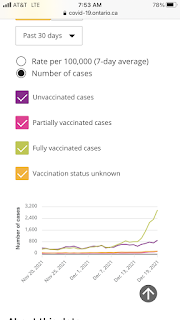If I go there will be trouble
If I stay it will be double
--The Clash
Last time we discussed the relationship between specialization and the external environment. Essentially, the higher the degree of uncertainty in the external environment, the lower the appropriate level of specialization.
How can producers manage the tradeoff between productivity and adaptability inherent in specialized work? Two strategies seem plausible--both involving reduced degrees of specialization (or higher degrees of diversification) as uncertainty increases.
The first strategy we'll call static diversification. The concept parallels portfolio theory in finance, except that instead of a portfolio of securities, producers deal with a 'task portfolio.' The narrower the task portfolio, the fewer the skills and the more specialized the portfolio.
In certain environments, task portfolios should be very narrow so that producers can reap the productivity benefits of specialization without concern for having to alter the portfolio to cope with environmental change.
However, in uncertain settings, producers must spread it around, investing in various skills to hedge risk that some skills will be obsoleted by disruptive change. By embracing the adage of not putting all eggs in one basket, producers operate in various lines of work and perhaps in various markets so that they are not dependent on one specific skill set. This variety improves adaptive capacity.
How much static diversification is necessary? Returning to our core proposition that degree of specialization is inversely proportional to level of environmental uncertainty, the more turbulent and uncertain external contexts are, then the more diversified the task portfolio should be.
The second strategy is dynamic diversification. Using this strategy, producers broaden their task portfolios with learning skills that allow them to quickly adapt to changing environments. Ability to sense change, skill in new product and process development, and prowess in organizational change management all constitute 'dynamic capabilities' (Teece et al., 1997) that can be developed or acquired to improve adaptive capacity.
Such dynamic skills may not be directly useful in the production of output for today's market. Instead, they constitute resources that enable timely reconfiguration of production for tomorrow's markets.
Because payoff associated with dynamic diversification is often delayed--perhaps for extended periods of time, managers may be reluctant to invest in it, preferring instead the immediate and visible fruits of static diversification. On the other hand, due to its potential for quickly shaping new, relevant skills when environments change, dynamic diversification may tie up smaller fractions of an overall task portfolio in diversification--allowing producers to specialize more in the here and now--and reap the associated productivity benefits.
So, if both static and dynamic diversification strategies are both viable approaches for dealing with the productivity/adaptability tradeoffs of specialization in uncertain settings, then which one is more preferable? Perhaps the better way to ask the question is this: Under what situations are static or dynamic diversification preferable?
That, my friends, constitutes an interesting research question--one that scholarship will hopefully help us answer at some point in the future.
Reference
Teece, D.J., Pisano, G., & Shuen, A. (1997). Dynamic capabilities and strategic management. Strategic Management Journal, 18(7): 509-533.
























![[Most Recent Quotes from www.kitco.com]](http://www.kitconet.com/charts/metals/gold/t24_au_en_usoz_2.gif)


